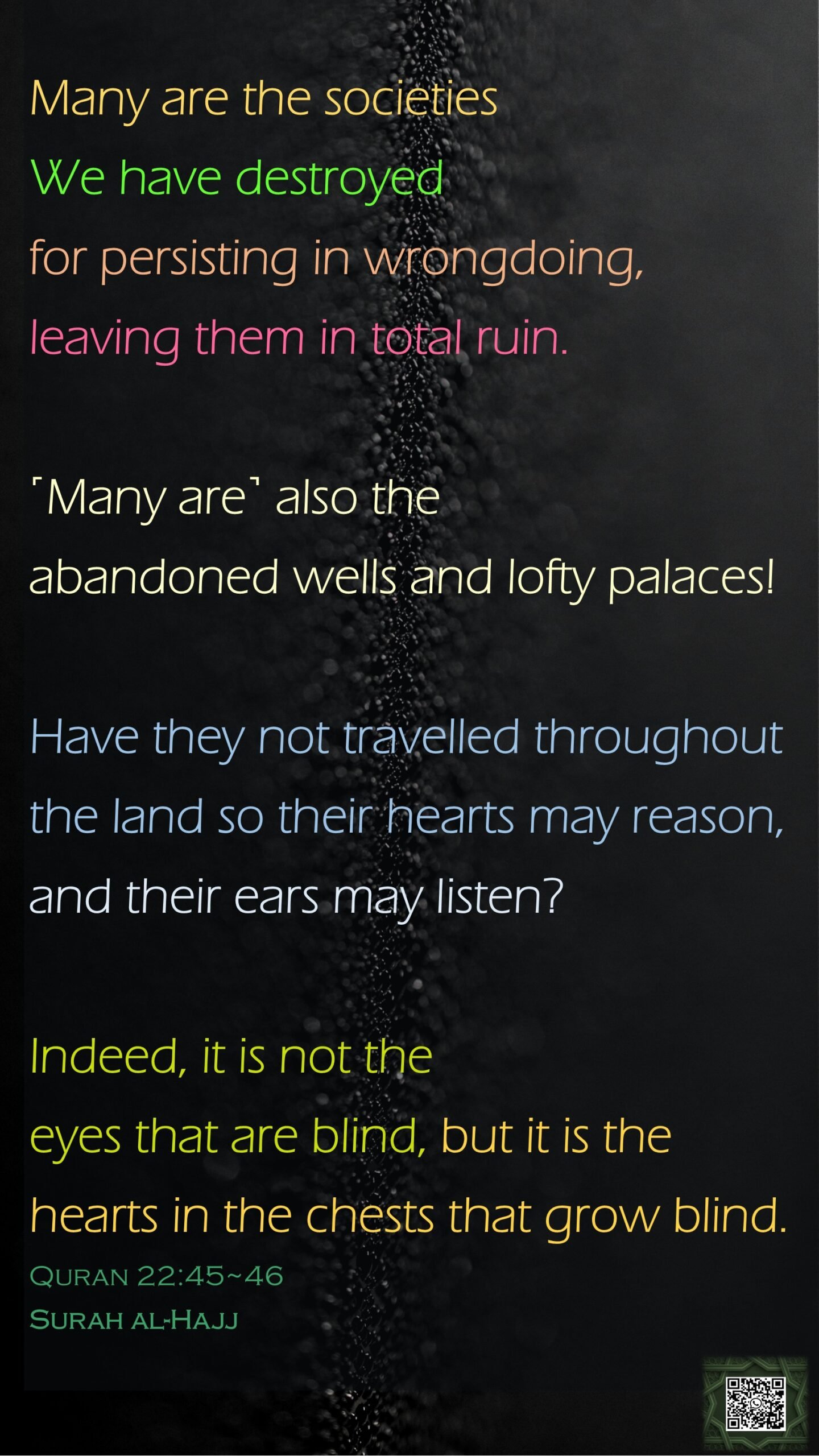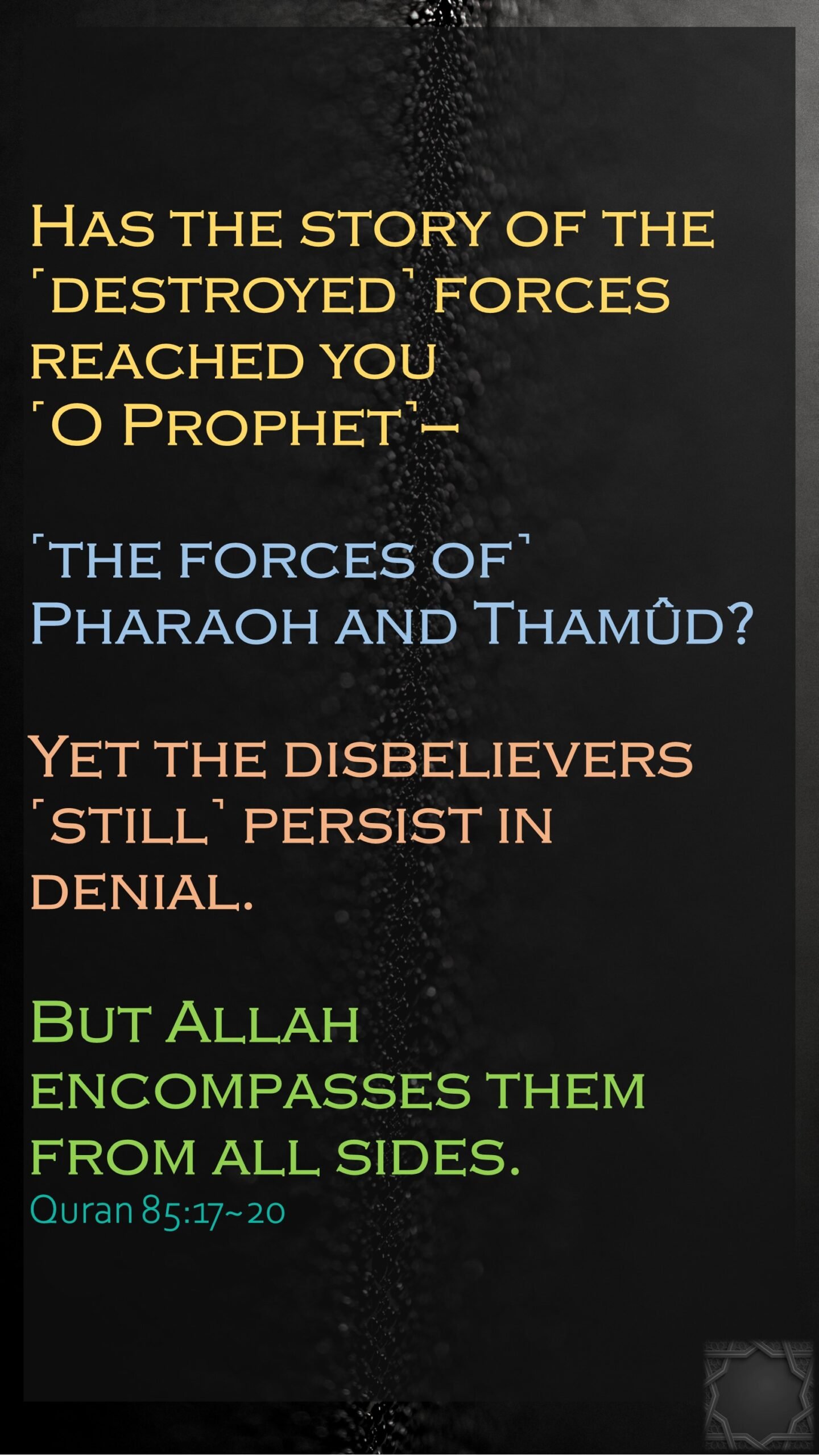Skip to Content
Tag Archives: destroyed
- Home -
- Posts tagged "destroyed"
14
Jan, 2026
Islam, Quran
022, 045, 046, abandoned well, al-Hajj, Allah, ayat, blind, chest, daily, destroy, destroyed, ear, eyes, heart, inspirations, islam, islamic, land, listen, lofty palaces, Muhammad, persist, pilgrimage, quran, reason, ruins, societies, society, Surah, total ruin, travel, wrongdoing
1
Dec, 2023
Islam, Quran
Abraha, Allah, army, attack, ayat, daily, destroyed, elephant, foiled, inspirations, islamic, Kaaba, Muhammad, quran, Surah
3
May, 2023
Islam, Quran
Allah, arrogant, ayat, daily, destroyed, drowned, end, Firun, God of Moses, inspirations, islam, islamic, never, Pharoah, quran, soldier, succeed, Surah, wrongdoer
12
Apr, 2023
Islam, Quran
Allah, ayat, Chapter 85, daily, denial, destroyed, disbelievers, encompass, inspirations, islam, islamic, Muhammad, persist, Pharaoh, quran, SAWW, story, Surah, Thamud, verses 17 to 20
18
Aug, 2022
Islam, Quran
Aad, Ad, Allah, ayat, daily, destroyed, dispute, down, favours, Gomorrah, inspirations, islam, islamic, Lord, Noah, Nooh, overturned, overwhelming, quran, Samood, Sodom, Surah, Thamud, transgression, upside, wrongdoing
12
May, 2022
Islam, Quran
age, Allah, ayat, Chapter 2, clear, daily, dependant, destroyed, fiery, fruits, garden, grapevines, inspirations, islam, islamic, kids, old, palm trees, quran, revelaions, rivers, Surah, whirlwind






